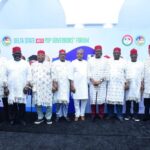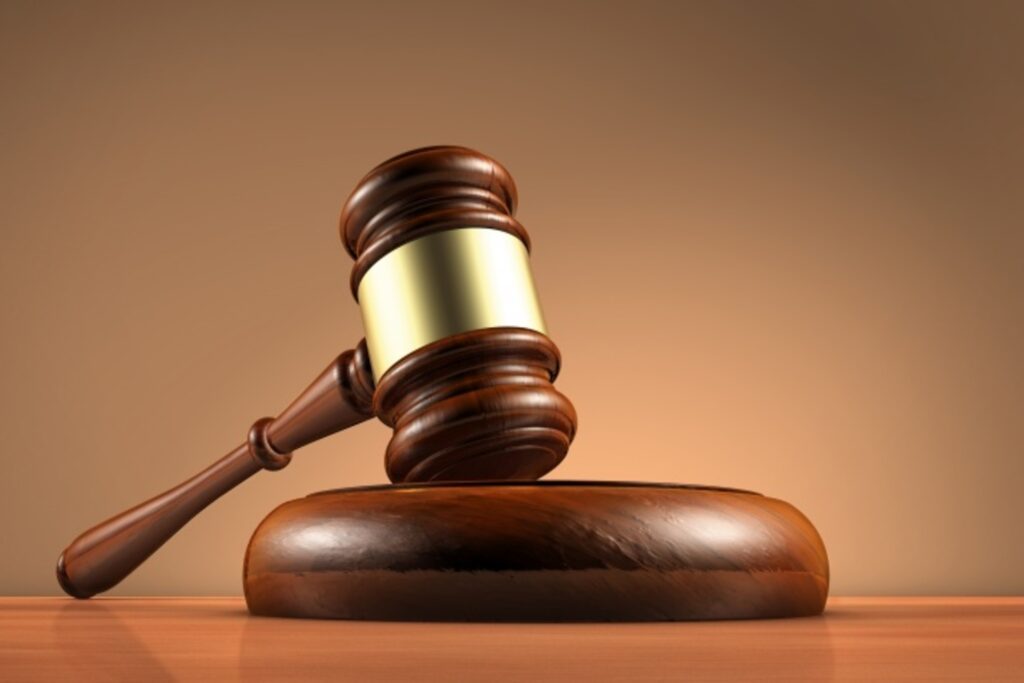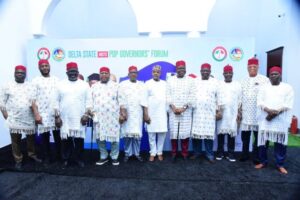GO TO COURT: NGO launches report on role of judiciary in undermining Nigeria’s civic space
A non-governmental organization, Spaces for Change, on Tuesday launched a report, GO TO COURT, which is a fact-finding mission of understanding how the Nigerian judiciary either expanded or contracted the civic space during the 2023 electoral cycle.
The NGO’s report coincided with the groaning of a retired Supreme Court Justice on the rot in Nigeria’s court system.
In a valedictory session observed in his honour last Friday, Justice Musa Dattijo particularly lamented the rots inside the Supreme Court that has made the delivery of justice a tall order.
In the report, Spaces for Change said the report, which received the support of Luminate Foundation, provides a series of critical recommendations for the preservation of the civic space during and beyond electoral cycles.
A statement from the organization says the report enjoys the blend of different forms of expertise from several sectors.
“This research benefited from the contributions of a diverse of group of experts, analysts, and teams within and beyond the organization that worked together to unravel newer forms of constraints on civil society, while exploring new pathways for transformative civic action.
“The way electoral disputes between persons or between government, or authority and persons, are handled is an important indicator of the court’s role in preventing or enabling the repression of civic space during the 2023 elections.
“Along This line, GO TO COURT! uncovered a number of noteworthy ways in which adjudicatory interventions by the Nigerian judiciary significantly impacted Nigeria’s electoral landscape both positively and otherwise. For example, there were instances when the expeditious hearing of electoral disputes combined with the progressive interpretation of the 1999 Constitution and electoral laws in certain pre-election matters occasioned shifts in judicial thinking and removed limitations on civic participation rights, thereby expanding open democracy.
“On the other hand, evidence showed how several conflicting judgements handed down by several courts of record significantly constrained political participation and associative freedoms. The civic space declines when conflicting judgments influence electoral outcomes in a direction that is inconsistent with the wishes of the electorate.
“Conflicting court judgments also slow down the expeditious delivery of justice by increasing the number of cases requiring appellate consideration.
“Furthermore, the report sheds light on the burdensome litigation faced by the Independent National Electoral Commission (INEC) and other parties following the 2023 general elections. It highlights the implications of this burden and provides fresh evidence for deepening understanding of the relationship between electoral processes and the civic space and for enabling courts to balance the competing democratic values at stake.
“Through the robust analysis of court cases before, during and after the 2023 general elections, S4C puts forward new knowledge and evidence regarding the conditions, enablers and drivers that asphyxiate, rather than energize civil society organizing and citizen participation in democratic processes.”
The report also made far reaching recommendations for various levels of stakeholders to consider implementing in expanding the civic space.
The recommendations include;
“1. Amendment of Electoral Laws: The Electoral Act of 2022 introduced commendable changes but left substantial policy gaps in campaign financing transparency, court powers for internal party democracy, and exclusive jurisdiction of the Federal High Court over pre-election matters. Legislative amendments are necessary to address these vulnerabilities, which could be exploited to curtail free speech, association and assembly rights. These amendments should also encompass stricter penalties for electoral offenses.
“2. Full Adoption of Electoral Technology: Ambiguities in the electoral law clauses permit both modern electoral technologies and traditional manual methods for voter accreditation and result collation, granting INEC flexibility in procedure selection. Legislative changes are required to eliminate this uncertainty and ensure the full adoption of e-voting and e-counting.
“3. Independence of Electoral Institutions: Credible elections require independent electoral bodies, free from undue executive influence. This applies to courts, security agencies, political parties, observers, and electoral institutions, ensuring adherence to established rules, free from external pressures. The executive should abstain from pressuring election officials, judges, candidates, NGOs, and stakeholders to maintain electoral process fairness.
“4. Expedite Resolution of Election-Related Disputes: Swift resolution of election disputes is vital to avoid prolonged legal battles and governance instability. The judiciary must ensure efficient, fair hearings, striking a balance between speed and thorough examination of cases to reach just and fair decisions, averting potential political turmoil.
“5. Independent Monitoring and Reporting: Civil society organizations (CSOs) should enhance their role as independent watchdogs by monitoring various electoral stages, including voter registration, campaigning, voting, vote counting, and legal proceedings. By reporting their findings, CSOs promote informed public discussion and ensure accountability among electoral authorities and political parties.”










More Stories
Military air strikes kill several terrorists in failed attack on Marte
Pastor’s driver mauls four siblings to death with pestle
Saudi Govt deports controversial Islamic cleric, Sheikh Gumi to Nigeria